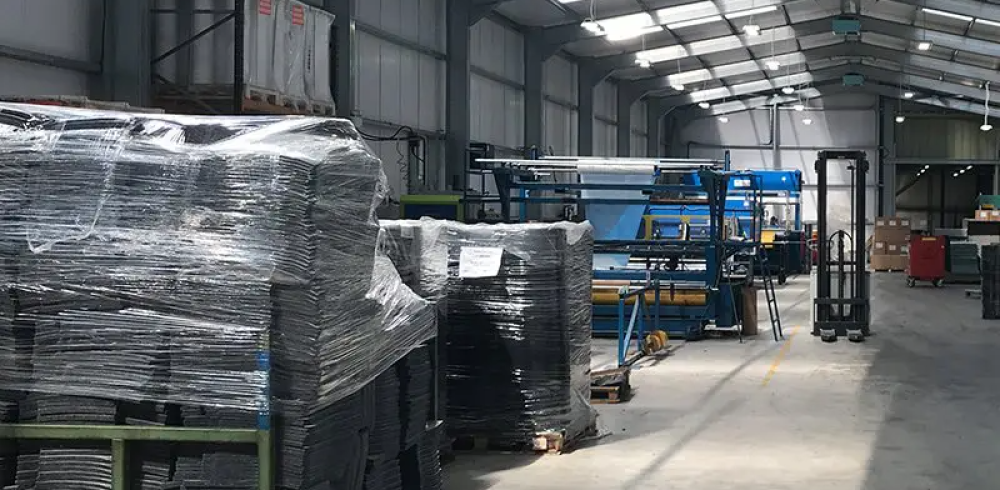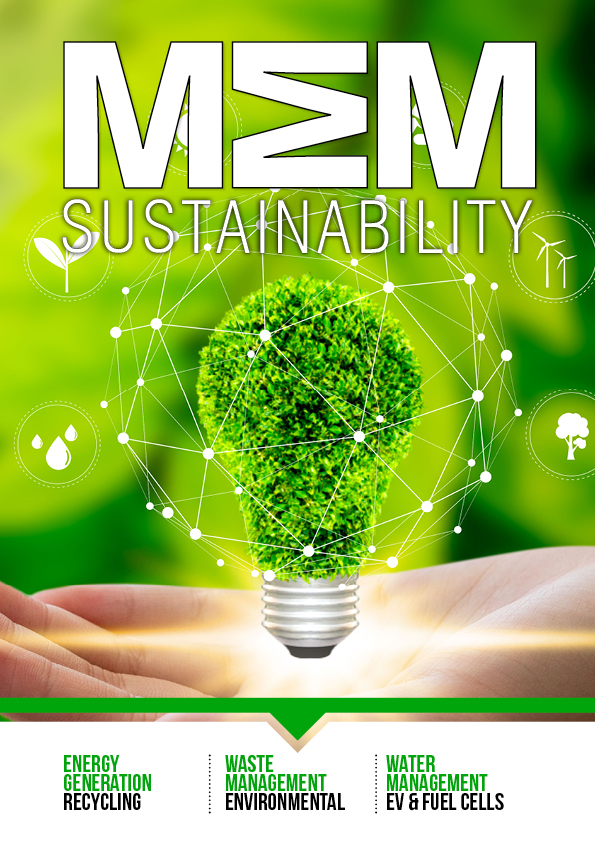An automotive parts manufacturer has made sustainability a key driver within the business by increasing the use of recycled, sustainable materials and natural fibres on the company’s production line.
Interflex, which has been making NVH parts and sealing solutions for the automotive industry for 30 years, has introduced new ranges of recycled and recyclable materials to create a more sustainable supply chain and to meet the aim of reducing its carbon footprint.
Although best known for working in the automotive industry, the new materials Ocean and Mulchii™ have very diverse uses. Ocean is a polyester fibre used in the manufacture of acoustic absorbers designed to reduce noise and vibration in vehicles. Mulchii™ is a material made from hemp or jute and is used to make mulch mats which help create optimal growth conditions for newly planted trees.
Interflex’s MD Jim Griffin explains: ”We have long focused on the cost-effective use of materials to meet cost and performance demands as well as reducing weight in vehicles to make them more economical. So, it seemed like a natural extension to develop and use recycled materials in our products. We aim to be one of the most eco-conscious manufacturers in the automotive sector, as well as expanding the use of these products into other areas.”
Ocean is made from a minimum of 75% recycled polyester and can be recycled at the end of its lifespan. Lightweight and mouldable, it can help reduce shape complexity which cuts tooling costs and enables better utilisation of materials. Ocean is also heat sealable, as well as water and oil resistant and is already improving levels of recyclability at the end of a vehicle’s life.
Because Mulchii™ mats are made from flax or hemp, which can be grown in the UK and Europe, they have a smaller carbon footprint and are easier to source than the commonly-used coconut fibre which is expensive and grown further afield in locations such as India. Mulch mats allow trees to access nutrients and moisture as needed, helping to prevent roots from freezing during the winter. They also eliminate threats to healthy growth by suppressing weeds and providing protection from pests.
“As a responsible manufacturer aware of the potentially catastrophic implications of climate change, we are always looking for ways to make our supply chain and production line greener,” adds Jim.
“The products we make are important in reducing our carbon footprint. Ocean helps reduce weight in cars, which is significant in terms of maximising energy efficiency. Mulchii™ helps create better conditions for saplings to grow – and as we know, planting more trees helps offset the negative effects of climate change. Now we have further extended our sustainability policy by ensuring that the materials we use have great environmental credentials too.”
Manufacturing & Engineering Magazine | The Home of Manufacturing Industry News















